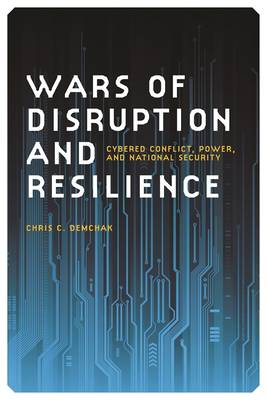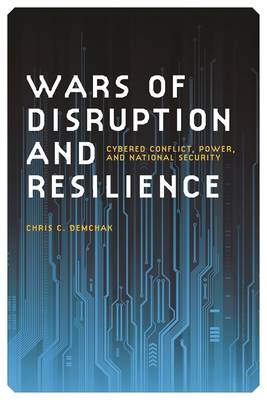
- Retrait gratuit dans votre magasin Club
- 7.000.000 titres dans notre catalogue
- Payer en toute sécurité
- Toujours un magasin près de chez vous
- Retrait gratuit dans votre magasin Club
- 7.000.0000 titres dans notre catalogue
- Payer en toute sécurité
- Toujours un magasin près de chez vous
215,45 €
+ 430 points
Format
Description
Increasingly, the power of a large, complex, wired nation like the United States rests on its ability to disrupt would-be cyber attacks and to be resilient against a successful attack or recurring campaign. Addressing the concerns of both theorists and those on the national security front lines, Chris C. Demchak presents a unified strategy for survival in an interconnected, ever-messier, more surprising cybered world and examines the institutional adaptations required of our defense, intelligence, energy, and other critical sectors for national security.
Demchak introduces a strategy of "security resilience" against surprise attacks for a cybered world that is divided between modern, digitally vulnerable city-states and more dysfunctional global regions. Its key concepts build on theories of international relations, complexity in social-technical systems, and organizational-institutional adaptation. Demchak tests the strategy for reasonableness in history's few examples of states disrupting rather than conquering and being resilient to attacks, including ancient Athens and Sparta, several British colonial wars, and two American limited wars. She applies the strategy to modern political, social, and technical challenges and presents three kinds of institutional adaptation that predicate the success of the security resilience strategy in response. Finally, Demchak discusses implications for the future including new forms of cyber aggression like the Stuxnet worm, the rise of the cyber-command concept, and the competition between the U.S. and China as global cyber leaders. Wars of Disruption and Resilience offers a blueprint for a national cyber-power strategy that is long in time horizon, flexible in target and scale, and practical enough to maintain the security of a digitized nation facing violent cybered conflict.Spécifications
Parties prenantes
- Auteur(s) :
- Editeur:
Contenu
- Nombre de pages :
- 304
- Langue:
- Anglais
- Collection :
- Tome:
- n° 26
Caractéristiques
- EAN:
- 9780820338347
- Date de parution :
- 15-09-11
- Format:
- Livre relié
- Format numérique:
- Genaaid
- Dimensions :
- 152 mm x 229 mm
- Poids :
- 653 g

Les avis
Nous publions uniquement les avis qui respectent les conditions requises. Consultez nos conditions pour les avis.






